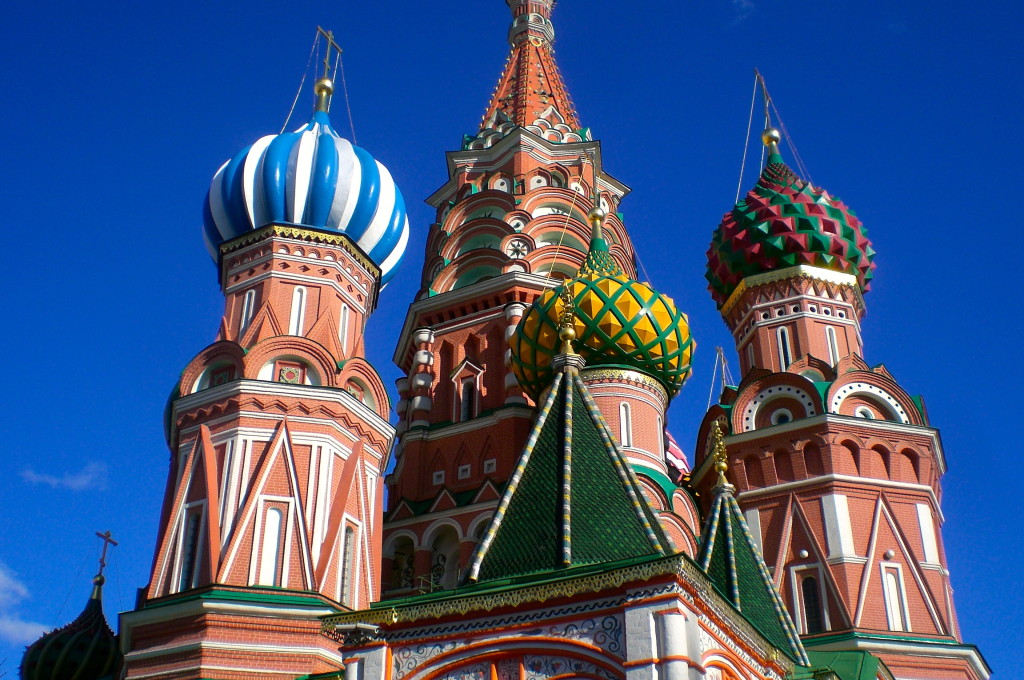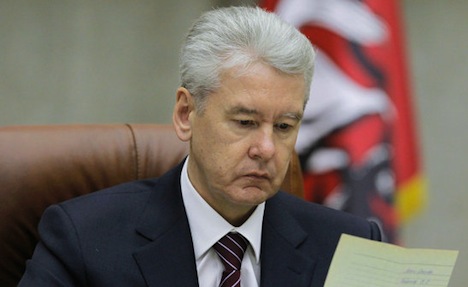In case you missed it (and there’s much more important news coming from Russia this week), Moscow mayor Sergei Sobyanin has won reelection heartily in what will be the biggest election this year in Russia.![]()
![]()
But don’t get your hopes up — Sobyanin’s reelection has long been certain since announcing what amounts to snap election earlier this summer.
Sobyanin, Moscow’s acting mayor since 2010 and formerly Russian president Vladimir Putin’s chief of staff, easily defeated opposition activist Alexei Navalny by a margin of 51.37% to 27.24%, just enough to avoid a runoff between the two candidates.
Sobyanin, who is Siberian (so not a native Muscovite), replaced longtime Moscow mayor Yuri Luzhkov, who was fired by then-president Dmitry Medvedev in October 2010. Sobyanin has demonstrated more energy as Moscow’s new mayor, and many Muscovites compare him to Luzhkov in his first years as mayor in the early 1990s — Sobyanin has worked to install bike lanes, develop parks and reduce traffic congestion within Moscow.
So even while Navalny demands a recount of the vote (and it’s suspicious that Sobyanin won 1.37% more than he needed to avoid a direct runoff with Navalny), there’s a credible basis to the notion that Sobyanin commands the support of a majority of Muscovite voters. Though there’s not much evidence of fraud in an election that had elements of competitiveness, Sobyanin’s campaign controlled the state media and used other advantages to enhance benefits of incumbency.
That hasn’t stopped Navalny, who is already demanding a runoff on the basis of alternative surveys of Sunday’s vote:
Exit polls conducted by the opposition leader’s campaign office suggest that Navalny has claimed 35.6 per cent of the vote, with Sobyanin receiving 46 percent. The opposition candidate announced that there will be a second round of voting in the mayoral election. He vowed to call on his supporters “to take to the streets” if it does not take place.
What’s most striking is that Navalny did so well — the 37-year-old blogger and anti-corruption crusader started off the race as an asterisk. When the race began in June, Navalny was polling less than 10% in surveys, but that was before the Russian government harassed Navalny in myriad ways, most notably through a conviction of embezzlement on charges that Navalny stole around $500,000 out of a timber company in Kirov. As a popular uproar against Putin surged in protest of what many Russian believe was a politically motivated trial, the government provisionally released Navalny, allowing him to continue his campaign. But Navalny faces imprisonment if his conviction isn’t overturned, which could sideline him in Russia’s next legislative elections for the State Duma (Госуда́рственная ду́ма) in 2016 or even the next presidential race in early 2018. Continue reading Putin ally Sobyanin holds on for full term as Moscow mayor in race against Navalny

